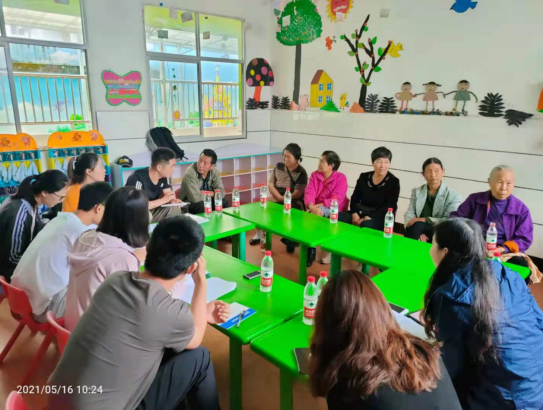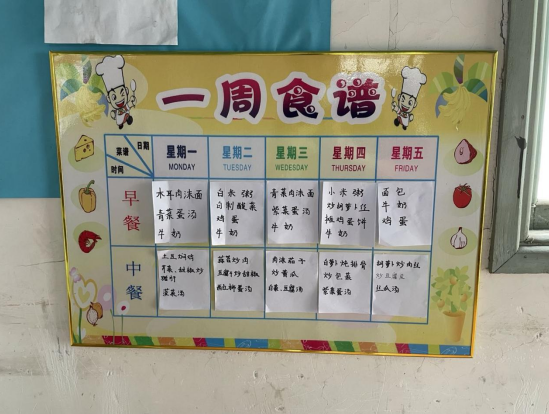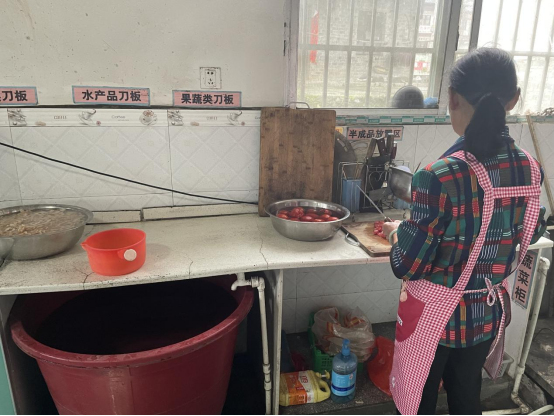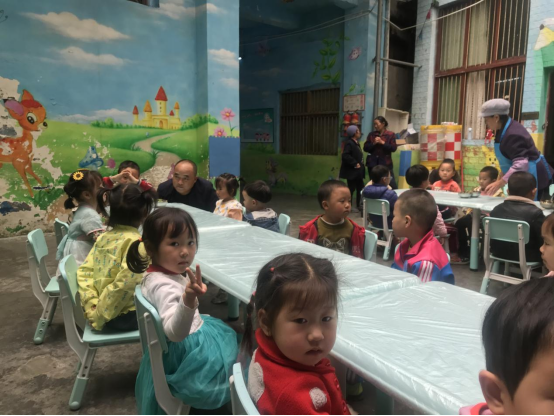Background Information to the Cases:
In September 2018, the "Pilot Project for the Nutrition Improvement of Preschool Students in Xiangxi" (hereinafter referred to as the "project") was officially launched by WFP. Supported by the Ministry of Agriculture and Rural Areas of the People's Republic of China and organized by WFP, it is an innovative pilot one and aims to improve the nutrition of rural preschool children. Longshan and Yongshun Counties, two poverty-strickenareas in Xiangxi Tujia and Miao Autonomous Prefecture, Hunan Province, China, were designated to be the first pilot counties in China in 2018.
There are two intervention measures in the project: Firstly, children have free access to nutritionalmeals in the relevant kindergartens so as to improve their nutrition and develop children's bodies; Secondly, the project helps poor households to establish a stable procurement chain and encourages small holders to participate in the direct supply of meals.
The PMO provides not only farmers with 9 different vegetable seeds and organic fertilizer, but also relevant training for kindergartens and farmers, which enriches the diet of kindergartens and increases farmers' planting diversity.

Successful Practices:
Xiangxi Prefecture Government invites nutrition experts to formulate a number of nutrition recipes according to the local planting characteristics and the availability of food ingredients for each kindergarten. At the same time, in order to improve the kindergarten's awareness of food and nutritional safety, the prefecture government regularly carries out nutritional diet training for kindergarten teachers, with corresponding assessment and competition activities. During the training, each kindergarten also invites 1-2 students' parents to participate. After receiving training, many kindergartens change their daily recipe from two dishes and one soup to three dishes and one soup.
In order to urge kindergartens to formulate more reasonable nutritional recipes, improve children's dietary diversity in kindergartens, and ensure healthy food and food safety in kindergartens, the PMO requires kindergartens to formulate recipes with at least 5 kinds of ingredients for each meal and at least 12 kinds of ingredients per day. The diversified dietary structure in the kindergartens enhance the kindergartens' needs for the food ingredients, so more kinds of agricultural products need to be purchased from contracted farmers. Farmers also change the planting types of agricultural products according to the needs of the kindergartens.

In order to enable farmers to apply fertilizer more scientifically and ensure the yield and quality of agricultural products, the PMO not only provides farmers with free agricultural inputs, such as seeds and organic fertilizer, but also teaches relevant crop planting and fertilizer application methods to the farmers. The contracted farmers are mostly smallholders, so their planting scale is small and the planted varieties are quite limited. Generally, the types and quantity of seeds distributed by the PMO can meet the demand. Therefore, farmers do not need to buy other seeds. Since the PMO distributes up to 9 kinds of seeds, the planting diversity has been increased. The farmers with relatively large planting scale will use the farm manure and plant ash as supplement, and no additional chemical fertilizers are needed. Therefore, most of the products are quality green food, which can improve children's nutrition and health, and can ensure the food safety for the kindergartens' children.
Xiang Mei is 54 years old. She lives in Duishan Village of Duishan County, Yongshun Town. Her family has been registered as living under the poverty line and her grandson is attending Smurfs Kindergarten in Yongshun County. After signing the "Agreement on Planting, Breeding, Production and Sales of Agricultural Products" with Smurfs kindergarten, she was hired by the kindergarten as a cook. Her family plants rice paddies and vegetables at home, and more than half of the output is supplied to the kindergarten. As the cook of the kindergarten, she is familiar with the menus of the kindergartens and knows well about the purchase of daily ingredients and the needs for long-term agricultural products. She plucks the corresponding ingredients from his own field and bring them to the kindergartens according to the menus of the kindergartens every day, which not only ensures the sound dietary structure of children in strict accordance with the menus, but also ensures the food safety by providing the freshest ingredients. After learning the nutrition knowledge taught by Xiangxi Prefecture Government, Smurfs Kindergarten has adjusted the menus greatly, and the diversity of children's diet has been increased. The kindergarten will suggest what kinds of agricultural products she needs to grow in the field next season according to the demand of ingredients, so as to meet the diversified needs of the kindergarten. Xiang Mei is also happy to change the planting varieties. At present, she has increased the planting of peanut, pumpkin, white gourd and other varieties.

Liu Guilian lives in Xiachi Village, Shipai Town, Longshan County. Her family is also a poor household registered as living under the poverty line. Without young and strong labor forces at home, her family makes a living by the government subsidies and some temporary jobs undertaken by her husband. Her family only has a small planting scale, and a small number of vegetables are supplied to kindergartens or sold on the market, so the seeds distributed by the PMO can fully meet the planting needs. Before signing the agreement, only several kinds of commonplace agricultural products, such as corn, sweet potato and potato, were planted throughout the year. After signing the agreement, her family can plant all the seeds distributed by the PMO in the field without the need to buy other seeds, which increases the varieties of planted agricultural products.
Achievements:
With the increase of farmers' planting varieties, the types of agricultural products provided to kindergartens will increase, which objectively caters to the demand of kindergartens for the quantity and diversity of agricultural products when it comes to formulate recipes and purchase food ingredients. Therefore, as the diversity of food supply in kindergartens increases, the children's dietary diversity has been improved.

The recipe training provided by the PMO to kindergartens has significantly increased the dietary diversity of children, ensured the nutrition and food safety of children, and promoted the planting diversity of farmers. By providing agricultural materials support to farmers, the PMO can increase the planting diversity of farmers, which in turn will diversify the dietary structure for the children in the kindergartens.
By Bi Jieying; Cai Mengjia; Gu Dongdong; Chen Zhigang
Category
The Diversified Planting and Children's Dietary Structure Promoted by Agricultural Subsidies and Training
Contributor
The Diversified Planting and Children's Dietary Structure Promoted by Agricultural Subsidies and Training
Country
Case Study

